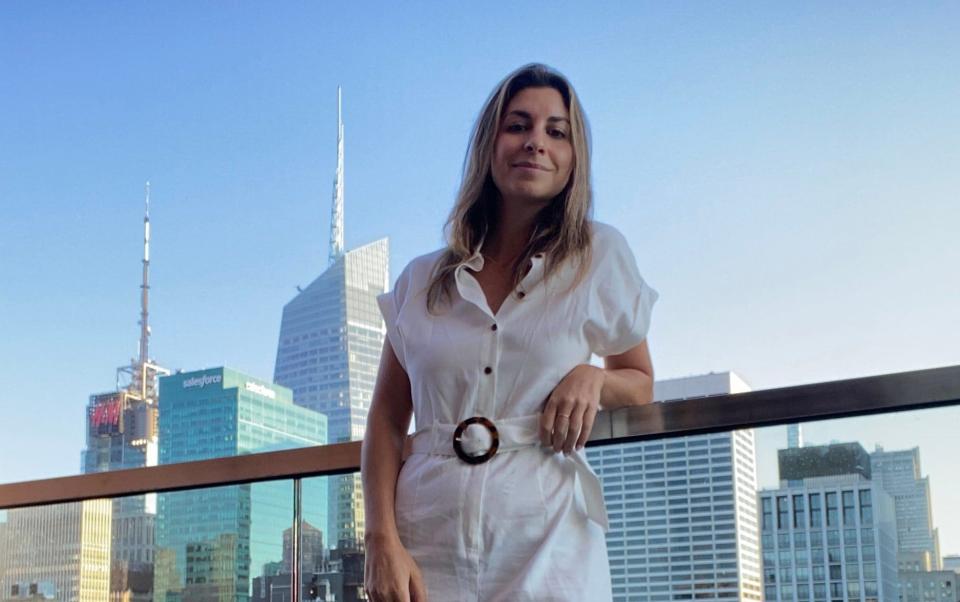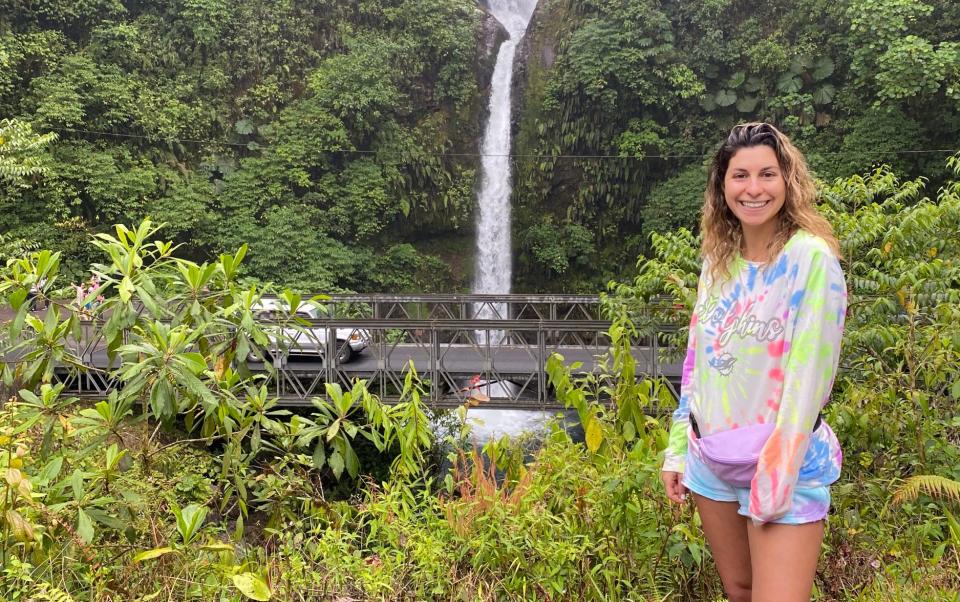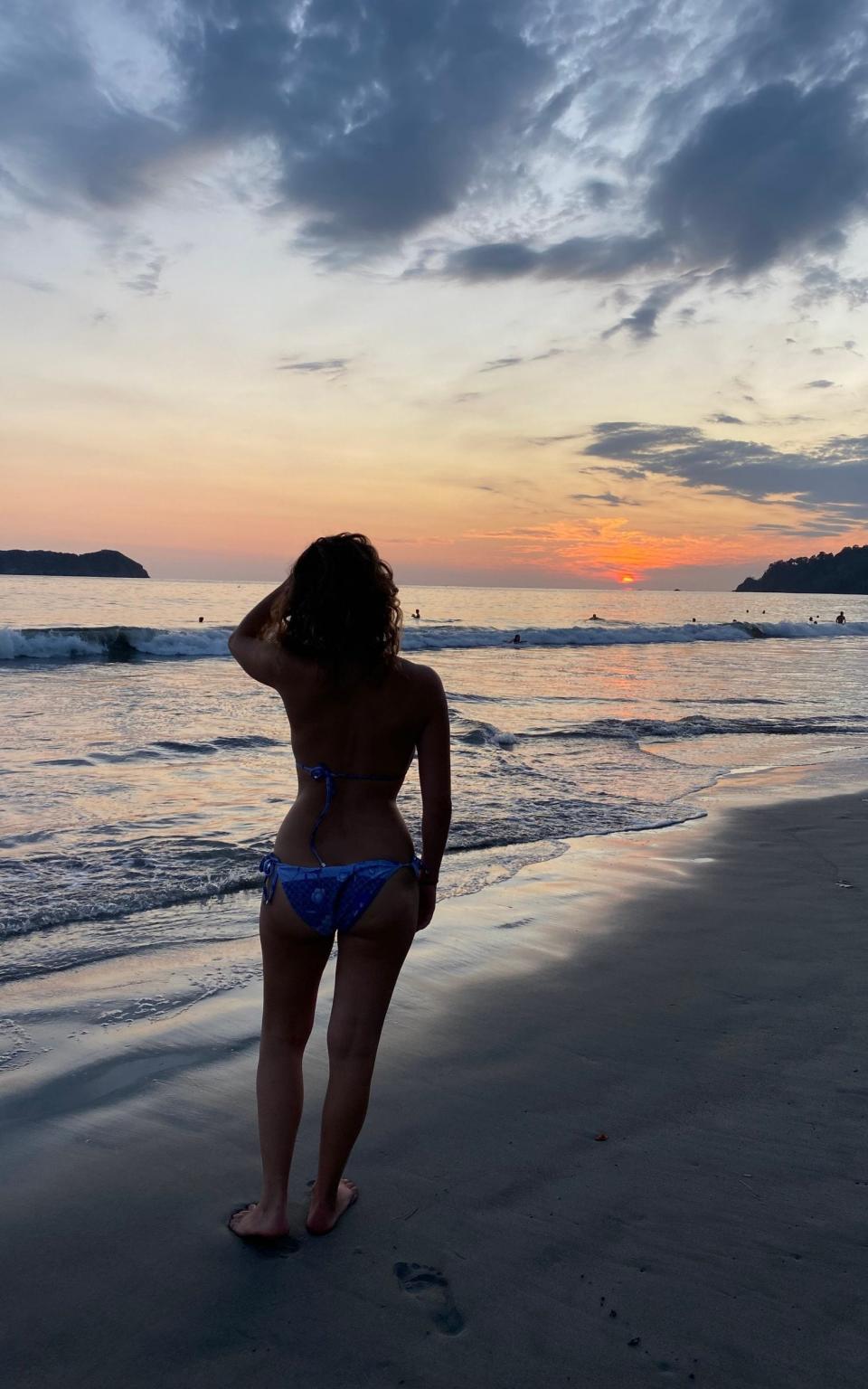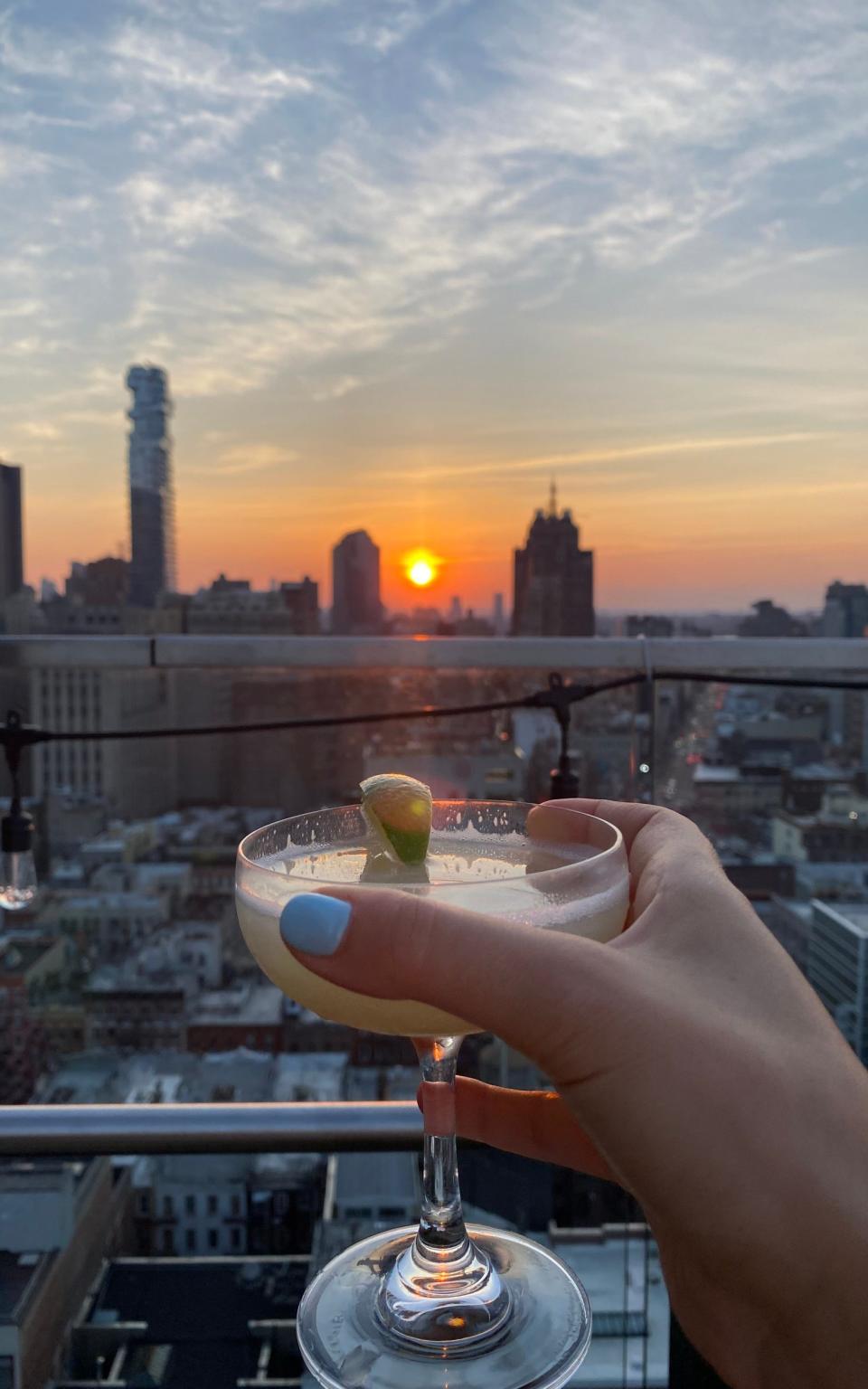After a catastrophic break-up I travelled the world solo – here's what I learnt

They say travel is the only thing you can buy that makes you richer. Frankly, I have always found that a horrible cliché – but as much as I hate to admit it, over the last few years it has proved true in my life.
Growing up, travel provided familiarity. Family holidays in the same hotel in Portugal every summer; the comfort of a pool menu that never changed and staff who knew our names.
It wasn’t until my 20s that I realised how travel can change you. At 18, I took a year out to tour around south-east Asia, Fiji and New Zealand. In Fiji, the electricity would cut out at 5pm and we would spend the evening playing cards by candlelight. I saw a totally different way of life; I learnt more about my own country by leaving it. Home comforts like a clean duvet and my mother’s home-cooking after a year of backpacking felt like a gift.
In New Zealand, I had thrown myself off canyons and jumped out of planes – I had felt weightless, totally carefree. Jumping out of a plane gave me clarity. It made me realise the kind of person I wanted to be; one who was never scared of taking a leap. But it wasn’t until years later that travel became a lifeline.
At 29, I experienced a catastrophic break-up; we had been together for five years, and had been dating since our early 20s. The shock was like a bolt of lightning; we had talked about our wedding, imagined what our children would look like – and in a moment, it was over. At an age when many of my friends were trying on wedding dresses or researching nurseries, I suddenly found myself alone.
Travel was something I had become used to experiencing in a couple. We had trekked to tea plantations in India, swum in the Kinneret and dined in Bedouin tents. When we broke up, I felt robbed of future adventures and realised that I didn’t know how to experience the world by myself.

But we have a choice: to allow our world to shrink, or to overcome our fears and live more boldly. I could choose to let my single status limit me, or to live in vivid technicolour regardless. I chose the latter: I decided to overcome any fears I had by exploring the world solo; I wrote a book, Unattached: Essays on Singlehood, encouraging women to reclaim their most brilliant selves; and I fell deeply, irrevocably in love with solo travel.
It started with a trip to Santorini, unarguably one of the most romantic places on Earth. But once I got used to the odd quizzical look from waiters, I found real joy in spending time alone. I felt almost defiant experiencing such a beautiful place alone: the white-washed buildings and perfect azure sea, ordering plate after plate of mezze and walking barefoot on black sand beaches. I found myself laughing out loud at the rebellion of it all – that I could enjoy such a place without needing to share it.
I just realised that the true beauty of travel can be lost on us when we experience it with someone else. We are so busy accommodating, compromising.
Solo travel, meanwhile, is an act of meditation; it forces us to be more present, to focus inwards. That trip gave me space to really process my sadness around the end of a relationship, in a way that I simply couldn’t in London. To paraphrase Robert Frost’s famous poem, “the only way out is through”. When you are at home – surrounded by the comfort of routine, friends, family – you can’t always see the way through. Travelling alone in Greece, however, I discovered it. It was to stop living on auto-pilot, stop chasing the same goals as everyone around me. I vowed to start living for myself; redefining what a happy and fulfilled life looked like.

But that wasn’t all. I found that relying on my own map-reading, bartering and travel-planning skills boosted my self-esteem. My arms got stronger from carrying my own bags. I found that the energy of different cities could inspire my work – whenever I faced a creative challenge, tackling it in a new country gave me renewed confidence.
I wrote my first book on the beach in Tel Aviv, fuelled by hummus, and the proposal for my second in a coffee shop in Los Angeles, a place that runs on cold-pressed juice and aspirations. There is something potent about experiencing a city alone; it feels as if its energy is seeping into your veins.
But for all its capacity to empower, it is solo travel’s ability to heal that makes me feel most thankful. In January 2022, my dad died very suddenly. He was taken ill on Thursday and died on the Sunday. In the weeks that followed, life was a flurry of organisation – planning a funeral, making arrangements, replying to condolence messages. But after the dust began to settle, grief put me in a chokehold. I couldn’t make sense of things; we had been distant for a few years, and I felt like an imposter in grief.
Travel saved me. A month after his death, I took a one-way flight to the Caribbean. I went to Saint Lucia – a place I had told him about but which he had never got round to visiting – and every day, for hours, I stared at the ocean. After that, I went to Costa Rica, where I hiked through forest in Monteverde, swam in waterfalls and spotted alligators in La Fortuna, watched butterflies in Abangares and sunsets in Quepos. I stayed away for six weeks and, on six-hour bus journeys, finally let myself cry, big fat tears rolling down my face as the scenery changed.
Grief wasn’t something I had given myself permission to do at home, where there was an invisible pressure to be brave, the person my friends and family knew. Thousands of miles away, I softened. I finally let myself feel.
And, eventually, I found a way through. I learnt – in demanding terrain, by navigating Central America as a solo female traveller, through blisters and exhaustion – that we are always stronger than we realise. In grief, you have two options: you can let it swallow you whole, or take from it the desire to live. Grief compelled me to travel more, as my father was no longer able to, and that thought helped me to push away the guilt I felt for still living fully when he could not.

One of the most painful things about losing a parent is no longer being able to tell them what is happening in your life. In a way, a part of your story ends with them.
But now – oh, the things I would tell him. How I would love to tell him that his passing woke me up. That it drove me to take a solo adventure to New York that summer, where I met my now husband. I would tell him that we eloped after just two months, that we are expecting a child and he is going to be a grandfather in June. How I would love to tell him that his little girl is having a little girl. His passing put me on a new path, one for which I am forever grateful. I only hope he is up there, watching it all unfold, with a knowing smile.

 Yahoo Movies
Yahoo Movies 